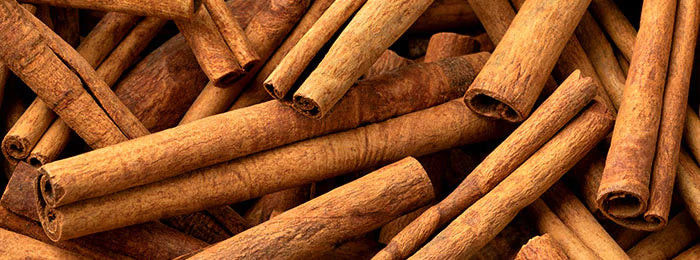Is cinnamon leaf oil the same as cinnamon oil?
Cinnamon leaf oil and cinnamon bark oil are different oils. Cinnamon bark has a sweeter and spicier aroma because of more cinnamaldehyde in it.
Can you put cinnamon essential oil on your skin?
Cinnamon oil must first be diluted with carrier oils, creams, lotions and shampoos before applying on the skin.
How to make cinnamon oil for skin?
Follow the steps to make instant cinnamon oil:
- Crush the cinnamon
- Heat olive oil in a pan and add the powdered cinnamon.
- Keep the flame at medium.
- Switch off the gas after three minutes.
- Allow the oil to cool and apply on the skin.
How to make cinnamon oil for hair and scalp?
Follow the steps to make instant cinnamon oil for hair: · Crush the cinnamon · Heat olive oil in a pan and add the powdered cinnamon. · Keep the flame at medium. · Switch off the gas after three minutes. · Allow the oil to cool and apply on the scalp.
How to use cinnamon bark essential oil?
Cinnamon bark oil is diluted and applied on the hair, scalp and skin. Its aroma is inhaled for colds and coughs.
How to use cinnamon cassia essential oil?
Cinnamon cassia oil is diffused in aromatherapy to enhance mood. It is applied on the scalp to promote hair and scalp health.
What does cinnamon aromatherapy do?
When used in aromatherapy, cinnamon oil has a mood enhancing effect. It is also used to relax and calm down.
What is cinnamon essential oil good for in a diffuser?
When it is used in an aroma diffuser, cinnamon oil has a mood enhancing effect.
































